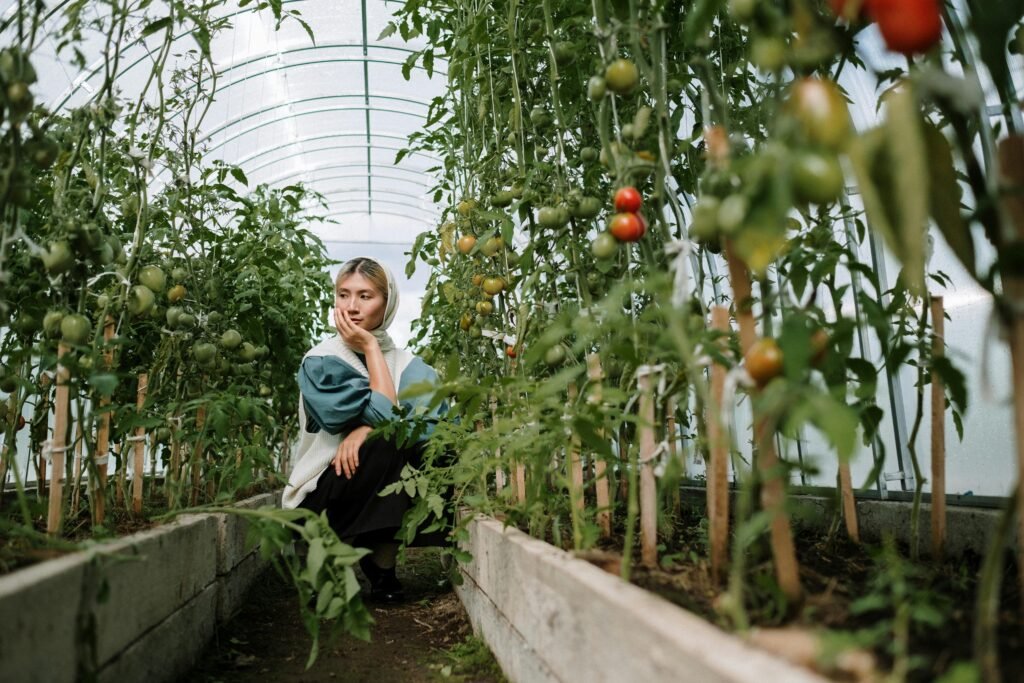Hey Plant Parents!
Today, while at a local plant nursery, I saw a couple asking for fertilizers because their ornamental plants weren’t as green as they hoped. It struck me how often we rely on quick fixes rather than sustainable practices.
What worries me even more is that the indoor plant market is expanding.
Read this.
Cognitive Market Research estimates the global market for houseplants to be worth approximately USD 16,514.2 million. Even the Indian market is witnessing a sharp rise and is expected to reach US$9.8 billion by 2029.
But this is also raising concerns over sustainability practices. We need to think about how we can grow responsibly.
Let’s understand the problem…
Plant collection can become an addiction for many people, leading to excessive consumerism and dissatisfaction with your current plants. The focus should be on enjoying a few plants rather than chasing trendy or expensive ones. It’s perfectly fine to simplify your plant collection and reassess your approach if you find yourself overly consumed by this hobby.
This is how it helps…
4 Ways to Grow Plants Sustainability
Turning your garden, balcony, or terrace into a sustainable garden is a step towards a greener, healthier future.
#1. Go native
Yes, I’m guilty. I have bought plants in big shops at a high rate. Even the word sale has tempted me to buy plants that aren’t native. That said, I have learned to control my urges.
So, you will see me buying from local growers only. This is my way of giving it back to the local nurseries and reducing the plant miles. You can do that too.
#2. Swap Plants
I’m all for it! Every year, when I repot my plants or trim them up, I end up with way more cuttings than I know what to do with. Instead of throwing them away, I love sharing them with other plant lovers. It’s such a fun and sustainable way to grow your collection while building a little plant community.
#3. Buy Containers from Thrift Stores
While you may have thought of this tip, I feel it is worth mentioning just to reaffirm its importance. So, don’t just stick to traditional planters—almost anything can be repurposed into a plant home if you get a little imaginative!
I’ve seen plant lovers use the quirkiest things: old tea tins, vintage coffee mugs, baskets, drawers, shoes, egg shells, beer cans, old boots, and even a random pair of jeans turned into planters!
It’s all about thinking beyond the pot and giving new life to things that would otherwise be tossed. You can also lend the extra containers to local nurseries that may otherwise eat up space in the store or garage.
#4. Look for biodegradable pots
Alternatively, you can look for containers made up of recyclable materials. Go out and you will find an amazing variety of containers in a range of materials: clay, terracotta, resin, metal, wood, bamboo, husk and recycled pot.
The Importance of Sustainability in Growing Plants
Let’s commit to practices that support the health of our planet for future generations to enjoy.
This is how it will help…
#1. Reduce carbon footprint
Let’s admit: the traditional methods of gardening involve water as well as energy wastage. Rainwater harvesting, composting, mulching, and the use of native plants help minimize the carbon footprint. Sustainability aside, these strategies will also help you save money.
#2. Preserve the biodiversity
Conventionally speaking, people have become used to using pesticides and synthetic chemicals to maintain their greens just like the couple I met at the nursery. However, these are harmful to pollinators such as bees and insecticides.
#3. Maintain soil health
No pesticides, and no chemicals make your soil happy and healthy to nurture your houseplants. You may try composting at home.
Parting thoughts
Embracing sustainable methods for growing plants not only benefits our environment but also fosters a deeper connection with nature. We can cultivate thriving gardens that contribute to a healthier planet.
So, whether you’re a seasoned gardener or just starting out, every small step counts. Together, we can create a greener, more sustainable future, one plant at a time.
With that, HAPPY PARENTING PLANTS!
